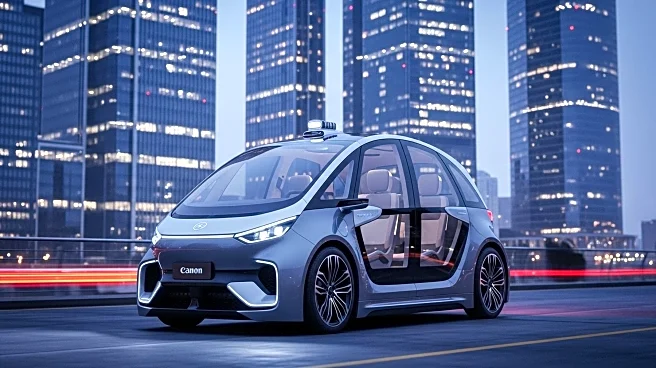What's Happening?
Lyft has partnered with May Mobility to launch a robotaxi service in Atlanta, marking the first commercial deployment in their collaboration. The service begins with a small fleet of hybrid-electric Toyota Sienna Autono-MaaS vehicles, operating during limited hours with a human safety operator present. This move is part of Lyft's strategy to establish a foothold in the robotaxi market, where it faces stiff competition from Uber and Waymo. Lyft plans to expand the service to more markets and increase the fleet size over time. The launch follows Lyft's recent deal with Baidu to introduce robotaxis in Europe and plans to deploy Mobileye-powered vehicles in Dallas by 2026.
Why It's Important?
The introduction of robotaxis in Atlanta is a significant step for Lyft as it seeks to compete with industry leaders like Uber and Waymo. The robotaxi market is rapidly evolving, with autonomous vehicles expected to play a crucial role in the future of transportation. Lyft's expansion into this area could help the company regain market share and improve its financial performance, which has been under scrutiny by analysts. The success of this initiative could influence the broader adoption of autonomous vehicles in urban areas, potentially transforming public transportation and reducing reliance on human drivers.
What's Next?
Lyft and May Mobility plan to gradually expand their robotaxi service in Atlanta, extending operating hours and increasing the fleet size. The companies aim to introduce the service to additional markets, potentially reaching thousands of vehicles. As the service grows, Lyft will need to navigate regulatory challenges and public acceptance of autonomous vehicles. The company will also continue to explore partnerships with other technology firms to enhance its offerings and maintain competitiveness in the evolving ride-hailing industry.









